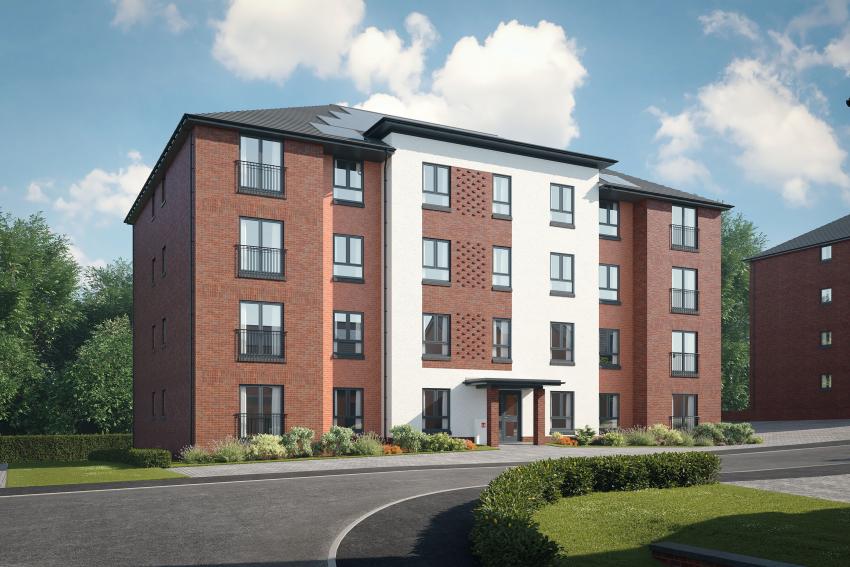First time buyer? Here's how much deposit you'll need
For most first time buyers, the biggest barrier isn’t finding the perfect home, it’s saving the deposit.
Let’s follow Emma, a 29 year old first time buyer from Manchester. She worked out how much she needed to save, built her deposit and finally bought her dream home.
Step 1: Understanding what lenders want
When Emma first started browsing property listings, she quickly realised she needed to understand how deposits work.
Most lenders in England will accept a minimum deposit of 5% of the property value. For Emma’s £200,000 home, that would be £10,000.
However, mortgage brokers often recommend aiming for around 10%, about £20,000 in Emma’s case, to access a wider choice of mortgage deals and better interest rates.
Step 2: Saving for the deposit
This is the toughest but most rewarding part of any homeowner’s journey.
1. Setting a savings goal
Emma decided to save £20,000 over 18 months. That meant putting aside about £1,100 per month when including bonuses and some side income.
To make it less intimidating, she broke it down further:
- £250 per week or
- £36 per day (roughly the cost of a night out or a takeaway).
2. Building a realistic budget
Emma started by tracking her spending using a budgeting app. Within the first month, she realised she was spending nearly £250 a month on food deliveries and coffee.
She made small lifestyle swaps:
- Cooked at home and prepped lunches for work.
- Cancelled unused subscriptions (saving £40/month).
- Moved to a SIM only mobile plan (saving £25/month).
- Shared streaming services with her sister.
In total, she freed up about £400 a month, which she redirected straight into her deposit fund.
3. Using a Lifetime ISA
Emma opened a Lifetime ISA (LISA). A government savings account that gives you a 25% bonus on what you save, up to £4,000 per year.
Here’s how it helped:
- She deposited £4,000 each tax year.
- The government added £1,000 in bonuses annually.
- Over two years, that’s £2,000 in free money toward her deposit.
- This meant Emma only needed to personally save £18,000 to hit her £20,000 goal.
4. Side hustles and extra income
To boost her savings, Emma picked up freelance social media work on weekends. Even earning an extra £300 per month added up to £4,000 over the year.
She also sold old clothes and furniture online, earning another £600.
5. Keeping her money safe and separate
Emma opened a dedicated house fund savings account with a high interest rate and automated her transfers right after payday.
Check out our blog for practical tips on how to boost your deposit.
Step 3: Reaching the goal
After 18 months, Emma had hit her £20,000 target. £18,000 from her own savings and £2,000 from government bonuses.
| Source | Amount Saved |
|---|---|
| Monthly savings | £14,400 |
| Freelance work & side income | £3,600 |
| Lifetime ISA bonus | £2,000 |
| Total deposit | £20,000 |
When she finally transferred that deposit to her solicitor, it felt like all her hard work had paid off.
Step 4: Buying the home
With a 10% deposit ready, Emma’s mortgage application was smooth. She secured a lower interest rate, which saved her about £120 per month compared with a 5% deposit deal.
Within weeks, they accepted her offer on a charming two-bedroom terrace, her very first home.
Lessons for first time buyers
- Aim for 10% if you can. It gives you better mortgage options.
- Break big goals into small targets to stay motivated.
- Use government schemes like the Lifetime ISA to boost your savings.
- Automate your savings and treat them like a monthly bill.
- Don’t be afraid to look for extra income through side work or selling unwanted items.
Listing with properties under £200,000
- Development: Ashlar Village
- Developer: Bellway
- Address: Bilsland Drive, Glasgow, G20

- Development: Squirrel Fold
- Developer: Gleeson
- Address: Thornton Road, Bradford, West Yorkshire, BD13

- Development: Artemis View
- Developer: Bovis Homes
- Address: Nash Road, Margate, Kent, CT9

Check out some of our other helpful resources:
Ways to improve your credit score
What bills do I need to pay when I own a house?
Please note that Emma is a fictional character and this article is provided for general informational purposes only.
Article overview
Buying your first home starts with understanding how much deposit you need. This guide explains the typical deposit percentages, factors that affect the amount and practical saving strategies. Learn how to calculate your deposit, plan your budget and take the first steps toward homeownership with confidence.
Article overview composed with the help of AI
Disclaimer
newhomesforsale.co.uk is an information platform and not a financial advisor, mortgage broker or mortgage lender. Always get financial advice before making significant decisions about your money, mortgages and buying a house.

Publish date 20th October, 2025
Reading time: 5 minutes
Written by Heather Bowles



